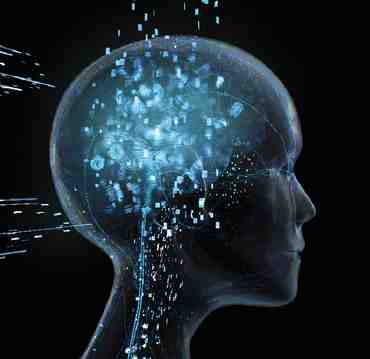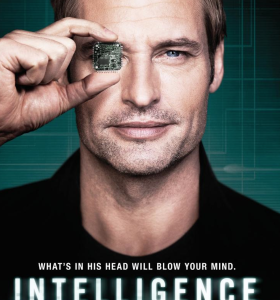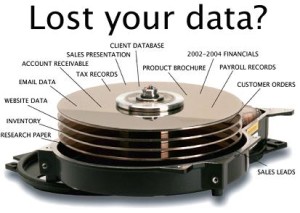 Flip on any screen that plays a moving image and you’ll see a fast spreading cultural meme in films, TV series and TED talks alike: human beings are integrating technology so deeply into their lives that it’s getting hard to tell where one ends and the other begins.
Flip on any screen that plays a moving image and you’ll see a fast spreading cultural meme in films, TV series and TED talks alike: human beings are integrating technology so deeply into their lives that it’s getting hard to tell where one ends and the other begins.
 J.J. Abrams has paired a cop with a robot in Almost Human. Intelligence is a show about another cop with a chip in his brain. And Spike Jonze’ Her deals with a heart broken guy (who’s not a cop– can that work?) who falls head-over-hard-drive in love with his operating system. It’s all pretty fanciful fiction… or is it?
J.J. Abrams has paired a cop with a robot in Almost Human. Intelligence is a show about another cop with a chip in his brain. And Spike Jonze’ Her deals with a heart broken guy (who’s not a cop– can that work?) who falls head-over-hard-drive in love with his operating system. It’s all pretty fanciful fiction… or is it?
 Ray Kuzweil says the human race will be inextricably linked with technology by the year 2045. He calls it The Singularity: a time when humans are literally augmented by technology via genetics, nanobots, and artificial intelligence. The phenomenon will continue to accelerate until artificial intelligence is unrecognizably advanced: meaning, if you have access to the resources, a simulated version of YOU can continue living, thinking, and evolving inside the nodes of a computer, long after you’re dead. There will be no going back.
Ray Kuzweil says the human race will be inextricably linked with technology by the year 2045. He calls it The Singularity: a time when humans are literally augmented by technology via genetics, nanobots, and artificial intelligence. The phenomenon will continue to accelerate until artificial intelligence is unrecognizably advanced: meaning, if you have access to the resources, a simulated version of YOU can continue living, thinking, and evolving inside the nodes of a computer, long after you’re dead. There will be no going back.
 It’s frightening and fascinating to live in an era when the birth of this reality is so tangible. Google Glass isn’t out of beta test phase yet and we’re already imagining losing those bulky frames and inserting the tech directly into our eye balls. Memory chips in the brains of Alzheimer’s patients is closer than you think.
It’s frightening and fascinating to live in an era when the birth of this reality is so tangible. Google Glass isn’t out of beta test phase yet and we’re already imagining losing those bulky frames and inserting the tech directly into our eye balls. Memory chips in the brains of Alzheimer’s patients is closer than you think.
 Cars driving themselves? The technology’s been successfully tested for years already. And talk about colonizing space has moved from sci-fi to think tanks. There is currently a plan on the table for an incremental colonization of Mars, one bio-pod at a time, just like we did for the international space station. The only thing holding us back from our Martian future is the 7 month commute time, but astronauts are training on the highways of Los Angeles to prepare.
Cars driving themselves? The technology’s been successfully tested for years already. And talk about colonizing space has moved from sci-fi to think tanks. There is currently a plan on the table for an incremental colonization of Mars, one bio-pod at a time, just like we did for the international space station. The only thing holding us back from our Martian future is the 7 month commute time, but astronauts are training on the highways of Los Angeles to prepare.
The Singularity is gonna be a rough transition, for shiz. Tests are already showing the deleterious effects of all this tech on our analogue minds. Remembering, for example, isn’t just something we do by ourselves. It’s a lot more social than that.
 Each of us gravitates to certain modalitites of knowledge. Some of us are better with historical events, others have a knack for dates and numbers, others still can recall the exact ingredients of a family recipe, or the precise order of notes in a symphony. Over time, we instinctively build a network of shared knowledge with those who are experts in the fields we are not. Not only does it keep us personally informed and more deeply connected, it also exercises different parts of the brain than merely looking something up on an iPad.
Each of us gravitates to certain modalitites of knowledge. Some of us are better with historical events, others have a knack for dates and numbers, others still can recall the exact ingredients of a family recipe, or the precise order of notes in a symphony. Over time, we instinctively build a network of shared knowledge with those who are experts in the fields we are not. Not only does it keep us personally informed and more deeply connected, it also exercises different parts of the brain than merely looking something up on an iPad.
 But more and more, people are turning to the web to satisfy their curiosity and the human web of memory is fast atrophying. How many phone numbers can you spit out from memory besides your own? Or addresses? What about that actor from that film? You know, he was in that other film, with that other actor? How long will you wrack your brain before the urge to pull out a smart phone overwhelms you? Why waste two seconds trying to figure it out? Or worse, call someone up who’s great with actors and films to ask them personally. Who wants to deal with that?
But more and more, people are turning to the web to satisfy their curiosity and the human web of memory is fast atrophying. How many phone numbers can you spit out from memory besides your own? Or addresses? What about that actor from that film? You know, he was in that other film, with that other actor? How long will you wrack your brain before the urge to pull out a smart phone overwhelms you? Why waste two seconds trying to figure it out? Or worse, call someone up who’s great with actors and films to ask them personally. Who wants to deal with that?
 The tendency to forgo remembering ’cause you have a super computer in your hand is called information off-loading. It’s an incredibly powerful convenience, but just like The Force, it has a dark side. What these tests are showing is that how we get our knowledge might be more important than we realize. Any grade school teacher will tell you that most kids learn better when the information comes from a human source. Intangibles such as a tone of voice, cadence of a delivery, a concise hand gesture or moment of eye-contact, can be more essential to retaining information than we comprehend.
The tendency to forgo remembering ’cause you have a super computer in your hand is called information off-loading. It’s an incredibly powerful convenience, but just like The Force, it has a dark side. What these tests are showing is that how we get our knowledge might be more important than we realize. Any grade school teacher will tell you that most kids learn better when the information comes from a human source. Intangibles such as a tone of voice, cadence of a delivery, a concise hand gesture or moment of eye-contact, can be more essential to retaining information than we comprehend.
 It wouldn’t so worrisome if we acknowledged all this, but one pathetic revelation of all this testing is the sorry extent to which people incorporate the Internet into a subjective sense of self. We actually think we’re getting smarter. But yank away that computer, and more than half of us couldn’t call our best friend in an emergency, much less figure out the percentage on a tip.
It wouldn’t so worrisome if we acknowledged all this, but one pathetic revelation of all this testing is the sorry extent to which people incorporate the Internet into a subjective sense of self. We actually think we’re getting smarter. But yank away that computer, and more than half of us couldn’t call our best friend in an emergency, much less figure out the percentage on a tip.
Sorry for the reminder, but Google is not a part of your cognitive toolbox. It’s an add on, and when you’re off-line, you may find yourself reaching for what under past circumstances would already be in your hands.
 The Singularity will be fascinating when it’s finally achieved. Until then, we’ll have to put up with a whole new set of bullshit excuses from people and their newly integrated technology. Like, I couldn’t come into work cause my internal hard drive crashed. Or, your message got scrambled when my audio chip accidentally converted it.
The Singularity will be fascinating when it’s finally achieved. Until then, we’ll have to put up with a whole new set of bullshit excuses from people and their newly integrated technology. Like, I couldn’t come into work cause my internal hard drive crashed. Or, your message got scrambled when my audio chip accidentally converted it.
 Seeing people yelling at themselves in public certainly won’t be a rare sight. It already isn’t. But you can bet it’s gonna suck arguing with the Bangladeshi customer service rep that now resides inside your temporal lobe. Don’t worry if you can’t understand his accent. There’s a good chance you’ll be able to download a clarification app directly into your brain.
Seeing people yelling at themselves in public certainly won’t be a rare sight. It already isn’t. But you can bet it’s gonna suck arguing with the Bangladeshi customer service rep that now resides inside your temporal lobe. Don’t worry if you can’t understand his accent. There’s a good chance you’ll be able to download a clarification app directly into your brain.


Permalink
I recently had a USB port installed in my brain and have been directly downloading into my mind. Amazingly, there’s a lot more room that I thought. My browser is Firefox, but after reading this I think I’ll switch it over to google chrome.
Permalink
some magnificent thoughts here and probably a lot closer than we think to becoming reality. what is life going to be like ten years from now. parts of it will be unrecognizable….
Permalink
What are the odds the google is working on a brain to replace what’s in our heads? I’d say the odds are high. In fact, some of us might already be operating with them. Life is changing fast, that is for damn sure. Nice piece. Keepem comin’,
Permalink
Per the previous above, I feel like if we could install google brains in 1 percent of the most ignorant people on earth, it would go a long way to making things better. Imagine the children of Taliban members hearing their parents say something completely wrong and them being able to know that right away. We should be dropping cheap laptops with google on them in the middle east, not bombs.
Permalink
The good side of this could be the possibility of less STUPID people in the world, though I can already see people misusing the tool or not checking up on anything personally just like people already do with google. But what if it’s not all dark Orwellian disaster? What if it ends up making us all more efficient and smart?
Permalink
The Singularity is near. I hope it’s unilaterally not as ridiculous as any of Kurzweil’s wacko philosophy. He should have stuck to making electric piano’s!
Permalink
I would love to be one of the beta testers for a google brain, please. Hook me up if you can…
Permalink
Call me an optimist, but maybe our brains will adapt to incorporate all kinds of new information and we’ll begin sharing it through telekinesis since we’ll all be wired up. This is a transition phase we’re in and three of four generations from now, we’ll have adapted to it and maybe, just maybe be using more than 10 percent of our brains. How ever it goes down, I do hope it’s better than Johnny Depp’s newest disaster, Transcendence…